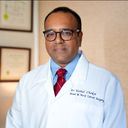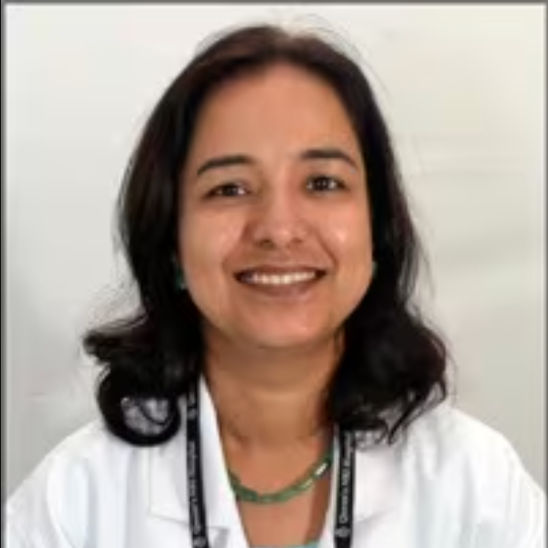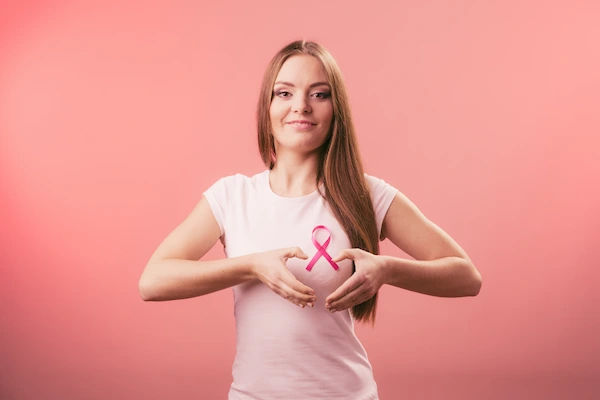Warning Signs of Breast Cancer to Know
Recognize the warning signs of breast cancer, including lumps, changes in breast shape, skin dimpling, and unusual nipple discharge. Early awareness and action can lead to better treatment outcomes.

Written by Dr. J T Hema Pratima
Reviewed by Dr. Rohinipriyanka Pondugula MBBS
Last updated on 12th Aug, 2025

Breast cancer is one of the most common cancers affecting women worldwide, but early detection can significantly improve treatment outcomes. Being aware of the warning signs can help you seek medical attention promptly, increasing the chances of successful recovery.
This article will guide you through the key symptoms of breast cancer, risk factors, and steps you can take to stay proactive about your breast health.
Common Warning Signs of Breast Cancer
Breast cancer symptoms can vary from person to person, but here are some of the most common signs to watch for:
1. A Lump in the Breast or Armpit
- The most well-known sign of breast cancer is a painless, hard lump in the breast or underarm area.
- Not all lumps are cancerous, but any new or unusual lump should be checked by a doctor.
2. Changes in Breast Size or Shape
- One breast may become larger or lower than the other.
- Visible swelling, even without a distinct lump, should not be ignored.
3. Skin Changes
- Dimpling or puckering of the skin (resembling an orange peel).
- Redness, rash, or scaly skin on the breast or nipple.
4. Nipple Changes
- Inverted nipple (turning inward).
- Nipple discharge (other than breast milk), which may be clear, bloody, or yellowish.
- Crusting or peeling around the nipple.
5. Pain or Tenderness
- While breast pain is often due to hormonal changes or benign conditions, persistent pain in one area should be evaluated.
6. Swollen Lymph Nodes
- Enlarged lymph nodes under the arm or near the collarbone may indicate cancer spread.
If you notice any of these changes, consult a doctor for further evaluation.
Who Is at Risk?
While breast cancer can affect anyone, certain factors increase the risk:
Non-Modifiable Risk Factors
- Gender: Women are at higher risk, though men can also develop breast cancer.
- Age: Risk increases with age, especially after 50.
- Family history: Having a close relative (mother, sister, daughter) with breast cancer raises risk.
- Genetic mutations: BRCA1 and BRCA2 gene mutations significantly increase risk.
Modifiable Risk Factors
- Obesity: Excess weight, especially after menopause, increases risk.
- Lack of physical activity: A sedentary lifestyle may contribute.
- Alcohol consumption: Regular alcohol intake raises risk.
- Hormone replacement therapy (HRT): Long-term use of estrogen-progestin therapy may increase risk.
What Should You Do If You Notice Symptoms?
1. Don’t Panic: Many breast changes are benign, but early detection is key.
2. Consult a Doctor: A healthcare provider can perform a clinical breast exam and recommend further tests.
3. Diagnostic Tests: These may include:
- Mammogram (X-ray of the breast).
- Ultrasound (to check for lumps).
- Biopsy (tissue sample analysis for cancer cells).
If you're unsure about your symptoms, Apollo 24|7 offers easy online consultations with specialists who can guide you.
Consult Top Specialists
How Can You Reduce Your Risk?
While not all breast cancers can be prevented, these steps can help lower your risk:
1. Regular Self-Exams
- Check your breasts monthly for any changes.
- The best time is a few days after your period ends.
2. Routine Screening
- Women aged 40+ should get a mammogram every 1-2 years.
- Those with a family history may need earlier screening.
3. Healthy Lifestyle Choices
- Maintain a healthy weight: Obesity is linked to higher breast cancer risk.
- Exercise regularly: Aim for at least 150 minutes of moderate activity per week.
- Limit alcohol: Stick to no more than one drink per day.
- Breastfeed if possible: It may lower breast cancer risk.
4. Know Your Family History
- If breast cancer runs in your family, genetic counselling may be helpful.
When to See a Doctor Immediately?
Seek medical attention if you notice:
- A new, painless lump in the breast or armpit.
- Sudden changes in breast shape or size.
- Unexplained skin changes (redness, dimpling).
- Nipple discharge (especially bloody).
Early detection saves lives, so don’t delay if something feels off.
Conclusion
Breast cancer is treatable, especially when caught early. Knowing the warning signs and staying proactive with screenings can make a big difference. If you have concerns, don’t hesitate to book a consultation with a specialist on Apollo 24|7 for personalised advice and care.
Book an appointment online for expert guidance on breast health. Early detection can save lives—don’t wait!
Consult Top Specialists
Consult Top Specialists

Dr. Rupam Manna
Radiation Specialist Oncologist
4 Years • MBBS MD(RADIO THERAPY)
Barasat
Diab-Eat-Ease, Barasat

Dr Devashish Tripathi
Radiation Specialist Oncologist
20 Years • MBBS, PLAB, MRCP (UK)- General Medicine, FRCR (Oncology), Certificate of Completion of Training (CCT)- Clinical Oncology
Delhi
Apollo Hospitals Indraprastha, Delhi

Dr. Vishal Choksi
Head and Neck Surgical Oncologist
20 Years • American Head & Neck Society (AHNS) certified from Memorial Sloan-Kettering Cancer Centre, American Board of Surgery (ABS) certified general surgeon, MBBS (India)
Ahmedabad
Apollo Hospitals Gandhinagar, Ahmedabad

Dr Sunita Samleti
Oncologist
18 Years • M.D. (Pathology)- TN Medical College, Mumbai University, Mumbai, Mar 2005 M.B.B.S. Grant Medical College, Mumbai University, Mumbai, Oct 1999
Chinagadila
Apollo Hospitals Health City Unit, Chinagadila

Dr. Amit Choraria
Surgical Oncologist
18 Years • MBBS, MS (Surgery) Fellow, Surgical Oncology, Tata Medical Center (FSO) Fellow, European Board of Surgery (Surgical Oncology) (FEBS) Fellow, Minimal Access Surgery (FMAS) Fellow, Indian Association of Gastrointestinal Endosurgeons (FIAGES) UICC Fellow, Royal Marsden NHS, London, UK Visiting Scholar, Plastic Reconstructive Surgery, CGMH, Taiwan Fellow, Robotic Surgical Oncology, Vattikuti Foundation, USA
Kolkata
Apollo Multispeciality Hospitals , Kolkata, Kolkata
Consult Top Specialists

Dr. Rupam Manna
Radiation Specialist Oncologist
4 Years • MBBS MD(RADIO THERAPY)
Barasat
Diab-Eat-Ease, Barasat

Dr Devashish Tripathi
Radiation Specialist Oncologist
20 Years • MBBS, PLAB, MRCP (UK)- General Medicine, FRCR (Oncology), Certificate of Completion of Training (CCT)- Clinical Oncology
Delhi
Apollo Hospitals Indraprastha, Delhi

Dr. Vishal Choksi
Head and Neck Surgical Oncologist
20 Years • American Head & Neck Society (AHNS) certified from Memorial Sloan-Kettering Cancer Centre, American Board of Surgery (ABS) certified general surgeon, MBBS (India)
Ahmedabad
Apollo Hospitals Gandhinagar, Ahmedabad

Dr Sunita Samleti
Oncologist
18 Years • M.D. (Pathology)- TN Medical College, Mumbai University, Mumbai, Mar 2005 M.B.B.S. Grant Medical College, Mumbai University, Mumbai, Oct 1999
Chinagadila
Apollo Hospitals Health City Unit, Chinagadila

Dr. Amit Choraria
Surgical Oncologist
18 Years • MBBS, MS (Surgery) Fellow, Surgical Oncology, Tata Medical Center (FSO) Fellow, European Board of Surgery (Surgical Oncology) (FEBS) Fellow, Minimal Access Surgery (FMAS) Fellow, Indian Association of Gastrointestinal Endosurgeons (FIAGES) UICC Fellow, Royal Marsden NHS, London, UK Visiting Scholar, Plastic Reconstructive Surgery, CGMH, Taiwan Fellow, Robotic Surgical Oncology, Vattikuti Foundation, USA
Kolkata
Apollo Multispeciality Hospitals , Kolkata, Kolkata



